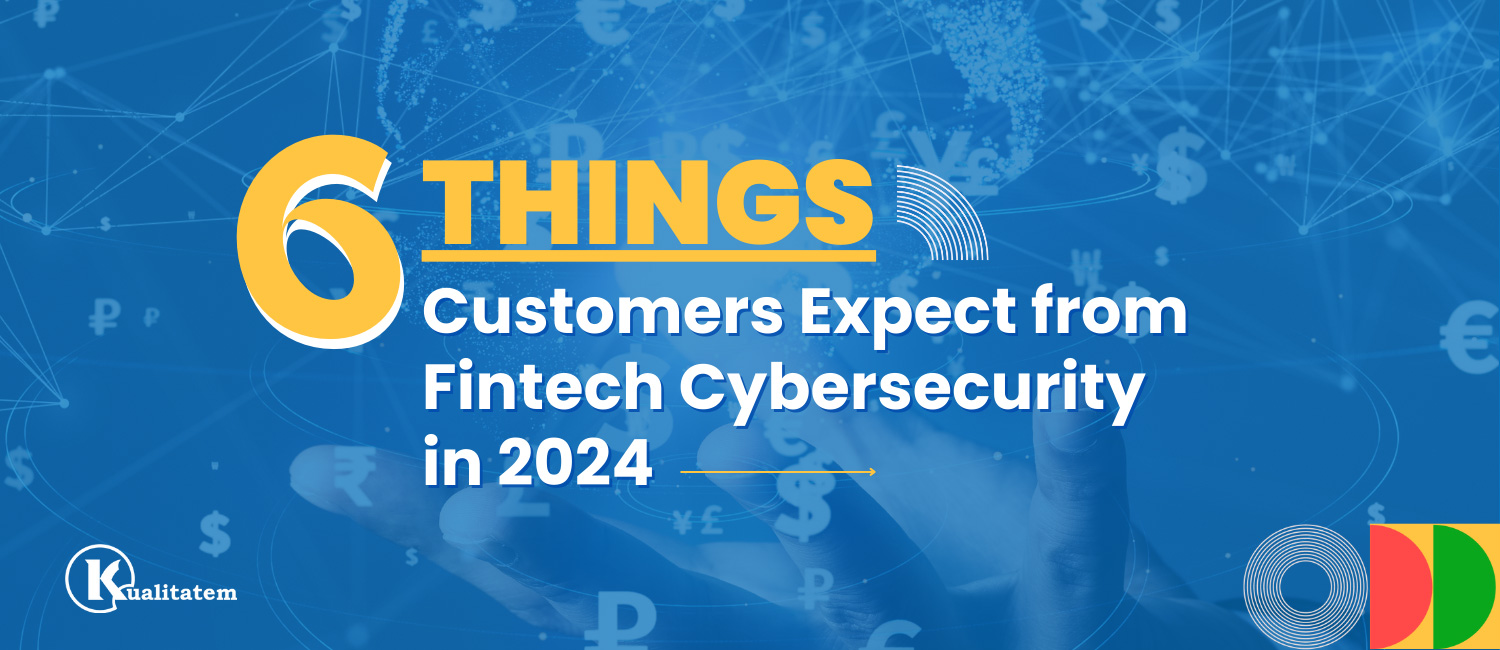6 Things Customers Expect from Fintech Cybersecurity in 2024

- November 6, 2024
- admin
FinTech is booming. According to the Boston Consulting Group, the compound annual growth rate (CAGR) for fintech firms was 14% in 2023. Experts predict the industry will hit USD 340.10 billion by 2024. But with great growth comes greater attention from cybercriminals. According to some estimates, one out of every five cyber attacks anywhere in the world targets the fintech sector. This sector’s continued growth requires managing its cybersecurity risk. Lets look at the things Customers Expect from Fintech Cybersecurity in 2024.
Zero-Trust Security
A Zero-Trust security paradigm means no device, user, or system should be trusted by default. All access requests are continuously verified and authenticated or otherwise denied by default. This minimizes the chances of unauthorized access. According to Forrester, zero-trust architecture reduces both the frequency and the scope of data breaches.
Multi-Factor Authentication (MFA) as a Standard
In 2024, Multi-Factor Authentication such as biometric verification, PIN authentication, and one-time passwords (OTPs), has become a widespread security standard. Customers expect fintechs to adopt an enhanced security posture, which means not only must MFA be implemented for conventional uses such as login but also to reconfirm every transaction or account change. According to research by Microsoft, MFA can prevent 99.22% account compromise attacks across the entire population – and 98.56% of such attacks even in cases where login credentials have been leaked.
Real-Time Fraud Detection and Prevention
Fraud in the finance sector doesn’t just represent financial loss due to the crime, but also loss of business. According to a report by Javelin Strategy & Research, 47% of consumers who experienced fraud said they would change providers if their fintech company didn’t resolve the issue quickly.
Fintech customers expect immediate notification and response to fraudulent activities. This necessitates AI and machine learning as a vital part of your detection and response arsenal. These fraud detection technologies analyze transaction patterns and behaviors to flag anomalies and stop malicious actions.
Continuous Security Updates and Patching
Outdated software is one of the top causes of cybersecurity breaches, which is why customers expect fintech companies to provide continuous security updates and patch vulnerabilities before they can be exploited. This includes updating mobile apps, websites, and backend systems. According to a study by PwC, 83% of consumers believe that protecting their personal data is essential for earning their trust.
Compliance with Regulatory Standards
Cybersecurity and data protection regulations have seen a surge of public interest around the globe. Customers expect fintech companies to comply with both industry-wide regulations and standards such as GDPR and PCI DSS (Payment Card Industry Data Security Standard), but also regional and national regulations and standards such as the SAMA Cybersecurity Framework (SAMA CSF).
These are often a legal requirement of doing business in a particular market, but they have the added advantage of giving customers added peace of mind and confidence in a fintech’s security offering.
Seamless, Secure User Experience
We know fintech customers expect robust data protection, real-time fraud detection, and cybersecurity that can keep up with evolving threats. But they don’t want to compromise their user experience for these benefits. In fact, according to a report by Signicat, 68% of users abandon fintech applications during onboarding.
Customers expect security to be integrated smoothly into their interactions, without causing frustration or delays. Biometric verification is a great example of that, since it gives user quick and convenient access while providing additional authentication.
Takeaway
As consumers become more aware of cybersecurity risks, their expectations for robust protection and quick resolution of issues will only heighten. Fintech firms that prioritize cybersecurity not only protect their customers but give themselves a critical competitive edge in an increasingly crowded marketplace.
Ultimately, the success of fintech companies in 2024 and beyond hinges on their ability to deliver on the vision of fully digitalized financial services with exceptional user experiences – without the dangers associated with cyberspace, ensuring that innovation does not come at the cost of safety.
Take the guesswork out of cybersecurity. Kualitatem has been involved in several Compromise Assessment assignments with BFSI. Reach out to Kualitatem today to discuss our Security And Risk Assessment | Testing Services | Kualitatem services and discover why 500+ clients trust us to ensure the safety of their most valuable technological assets.











